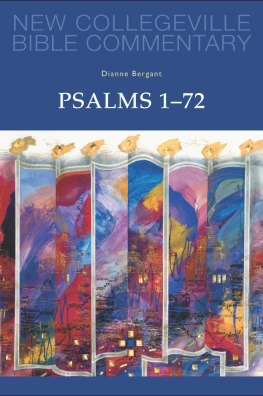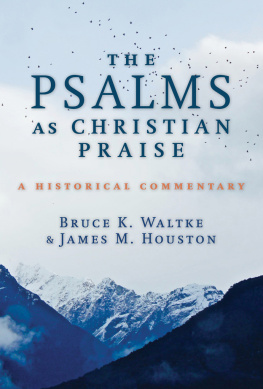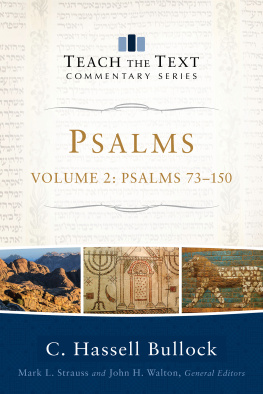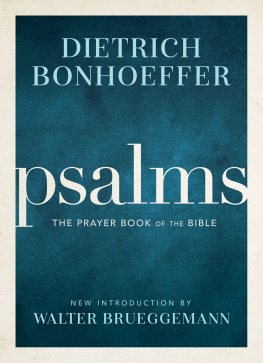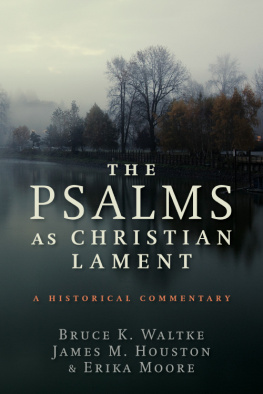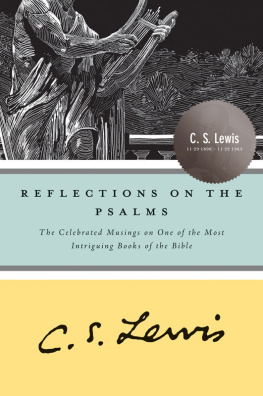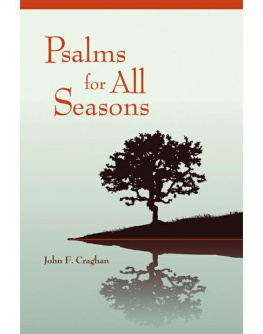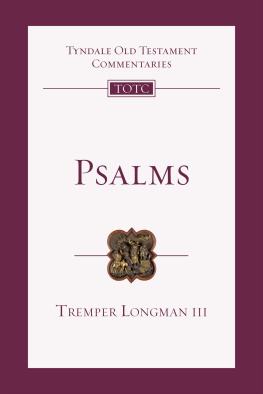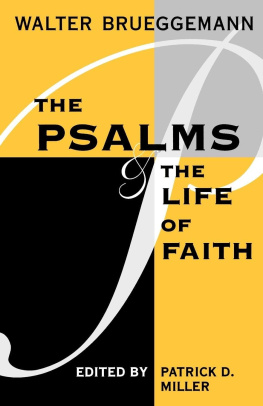INTRODUCTION
Psalms 172
About the book
The book of Psalms, also known as the Psalter, is really a collection of books, each of which ends with a short doxology or hymn of praise: book 1, Psalms 141; book 2, Psalms 4272; book 3, Psalms 7389; book 4, Psalms 90106; and book 5, Psalms 10750. The book of Psalms itself is composed of even earlier collections. Several psalms, found principally in the first book, are attributed to David. (This may account for the popular but probably not historically accurate tradition that David himself wrote most of the psalms.) Several psalms in the second and third books are ascribed to Korah or Asaph, the two great guilds of temple singers of the Second Temple period (cf. 1 Chr 6:33ff; 25:1-2). The fifth book consists of a number of songs of ascent and psalms of praise known as Hallel or the Hallelujah collection. There are also variations in the preferred name for God. Yahweh (rendered Lord), generally used in the first, fourth, and fifth collections, suggests an earlier Yahwist Psalter, while Elohim (God) is preferred in the second and third books, suggesting an earlier Elohist Psalter.
Some psalms include a superscription or an informative statement that precedes the psalm itself. This information might include identification of the earlier collection to which the psalm belonged (e.g., A psalm of David [Ps 3] or A psalm of Asaph [Ps 82]), liturgical directions (e.g., For the leader [Ps 68] or On stringed instruments [Ps 55]), lyrical classification (e.g., A maskil [Ps 54] or A miktam [Ps 59]), and a purported historical setting (e.g., for the dedication of the temple [Ps 30]). This information, which may have little meaning for contemporary readers, was probably included when the psalms were being collected. Since superscriptions are found in the Hebrew text, some English versions begin the numeration of the verses of the psalm with the superscription. The New American Bible Revised Edition follows this custom. Other versions begin the numeration with the first verse of the psalm itself. This explains why there is not always agreement among various translations or versions as to the number of verses in certain psalms.
LITERARY CHARACTERISTICS
The psalms are first and foremost lyrical creations, poems that are rich in metaphor and fashioned according to the patterns and techniques of ancient Israelite poetry. One of the most distinctive characteristics of this type of poetry is its parallelism. In this feature, the second half of a poetic line somehow echoes the sense of the first. Thus we read in Psalm 61:
| hear | my cry, O God |
| listen to | my prayer |
This poetic technique serves to intensify the point being made.
Another very important feature found in several psalms is the acrostic structure. In this structure the first letter of the first word of successive poetic lines follows the order of the alphabet. The structure is meant to suggest comprehensiveness, similar to the English expression from A to Z. Unfortunately, this alphabetic pattern is usually lost when the psalm is translated. However, identification of the acrostic or alphabetic pattern has been retained in Psalms 37, 111, 112, and 119.
A third important feature of the psalms is meter. This is a form of poetic rhythm that is determined by the number of accents in the words that comprise the line of poetry. Since this is a feature of Hebrew poetry, it is also lost in translation.
Finally, a single word, selah, is found in several psalms. It is probably an indication of some kind of pause, but it does not always follow the sense of the poem. Many scholars believe that it might have originally functioned as a liturgical or musical directive. However, this is not clear. Nonetheless, it has been retained in the Hebrew and so it does appear in many versions of the Psalter.
Types of psalms
The major classifications of psalms are lament, hymn, prayers of confidence, and prayers of thanksgiving. There are also royal psalms, wisdom poems, historical recitals, ritual or liturgical, and some psalms that might fit more than one classification.
Laments

